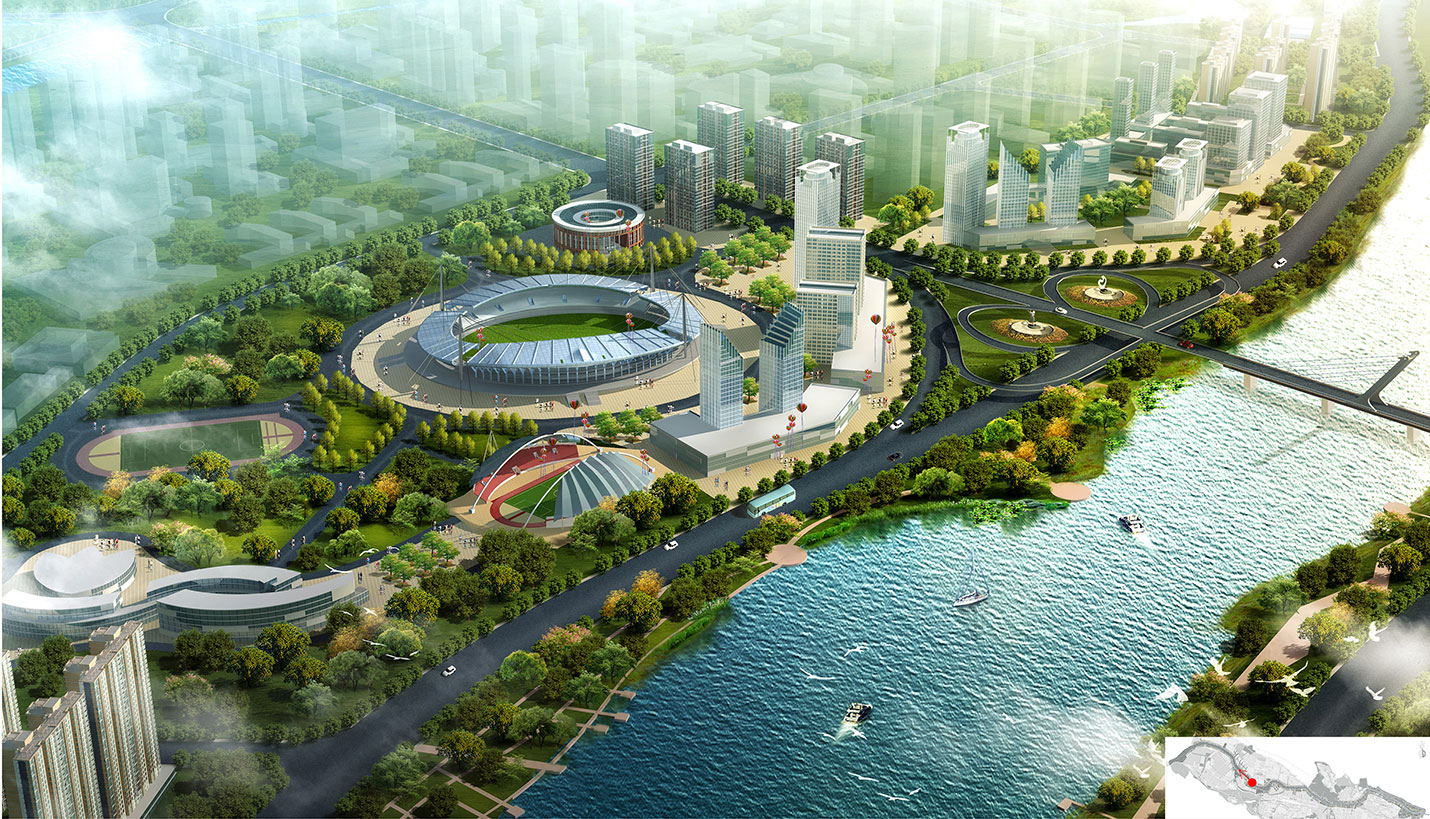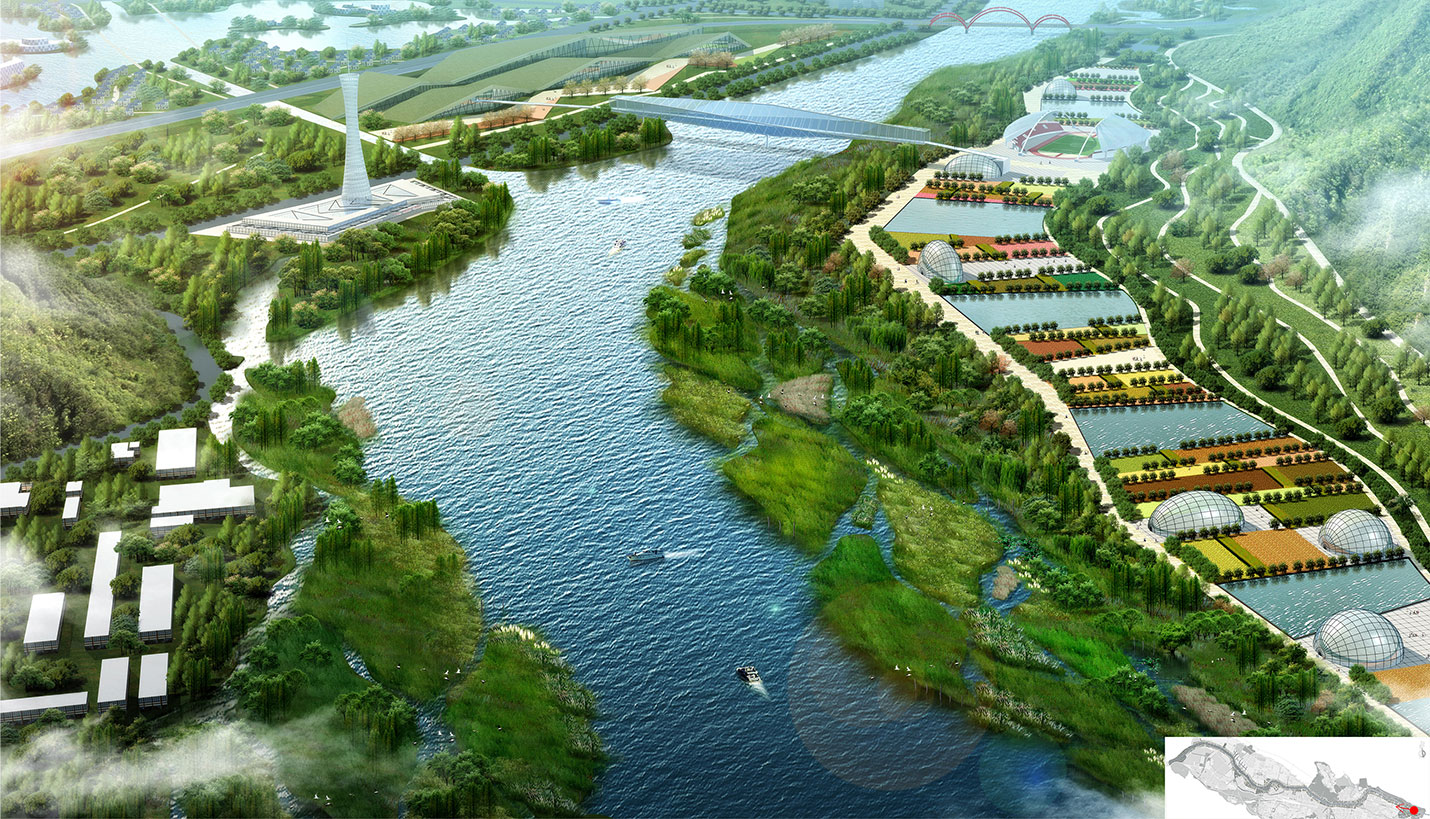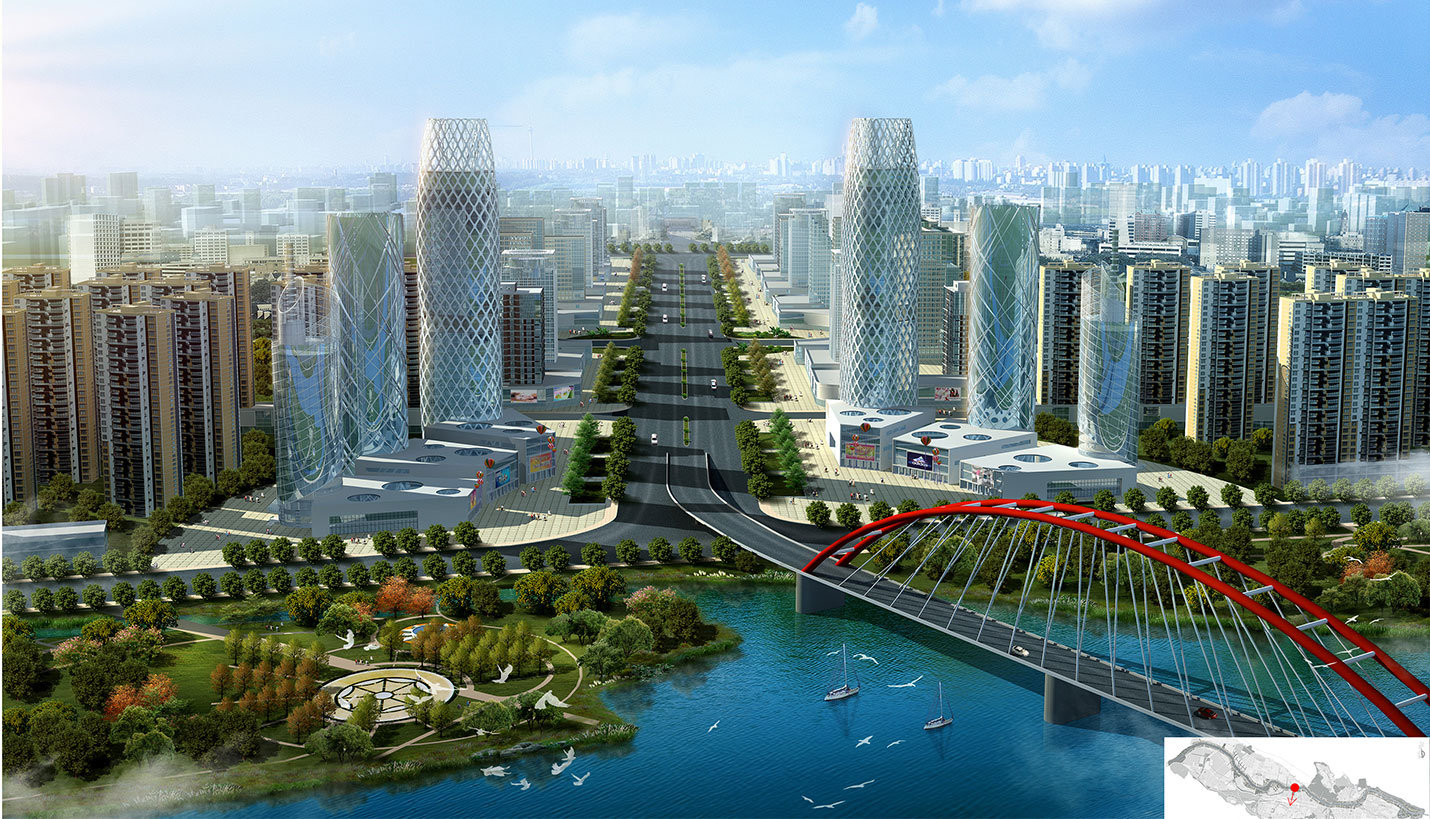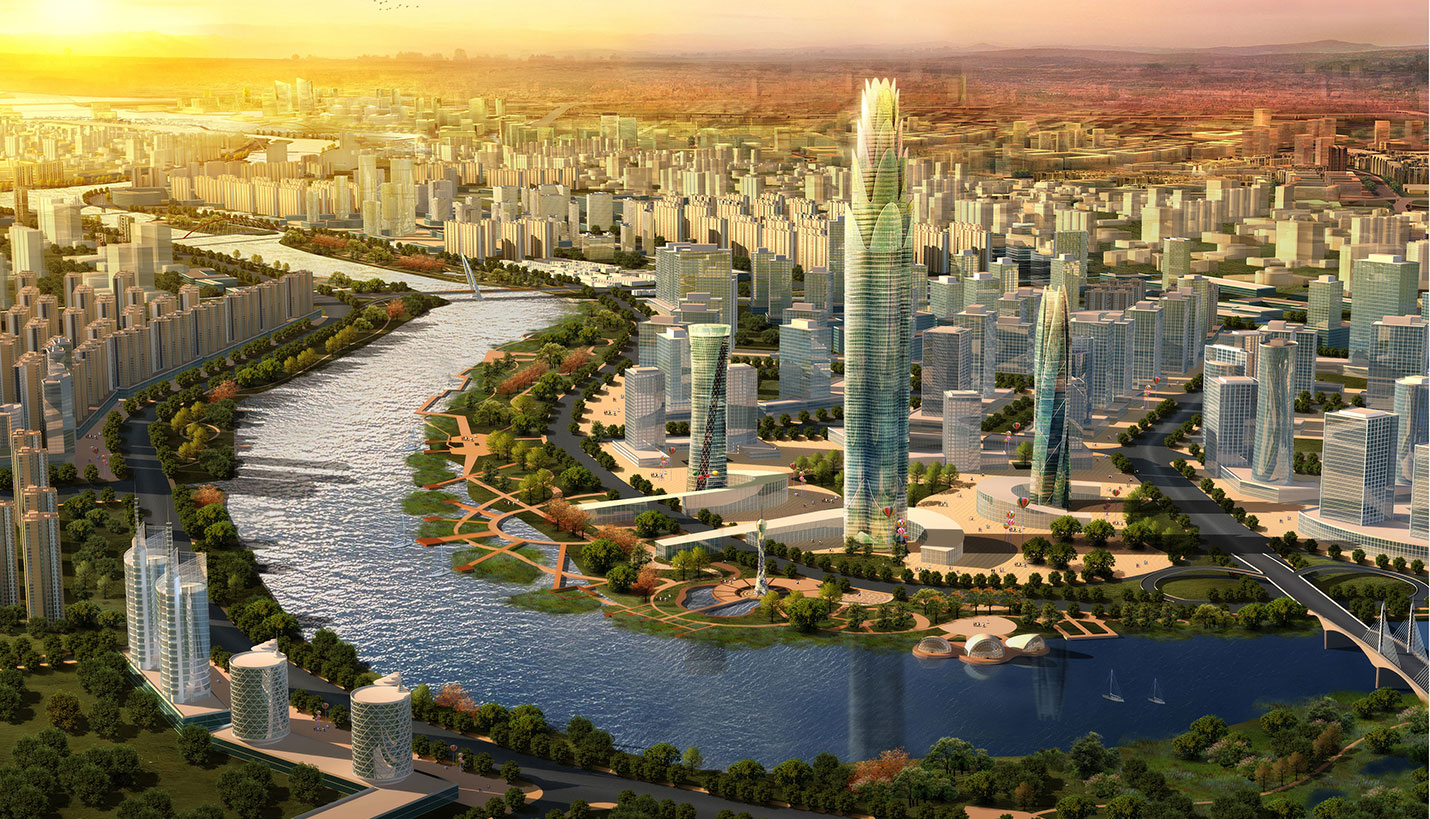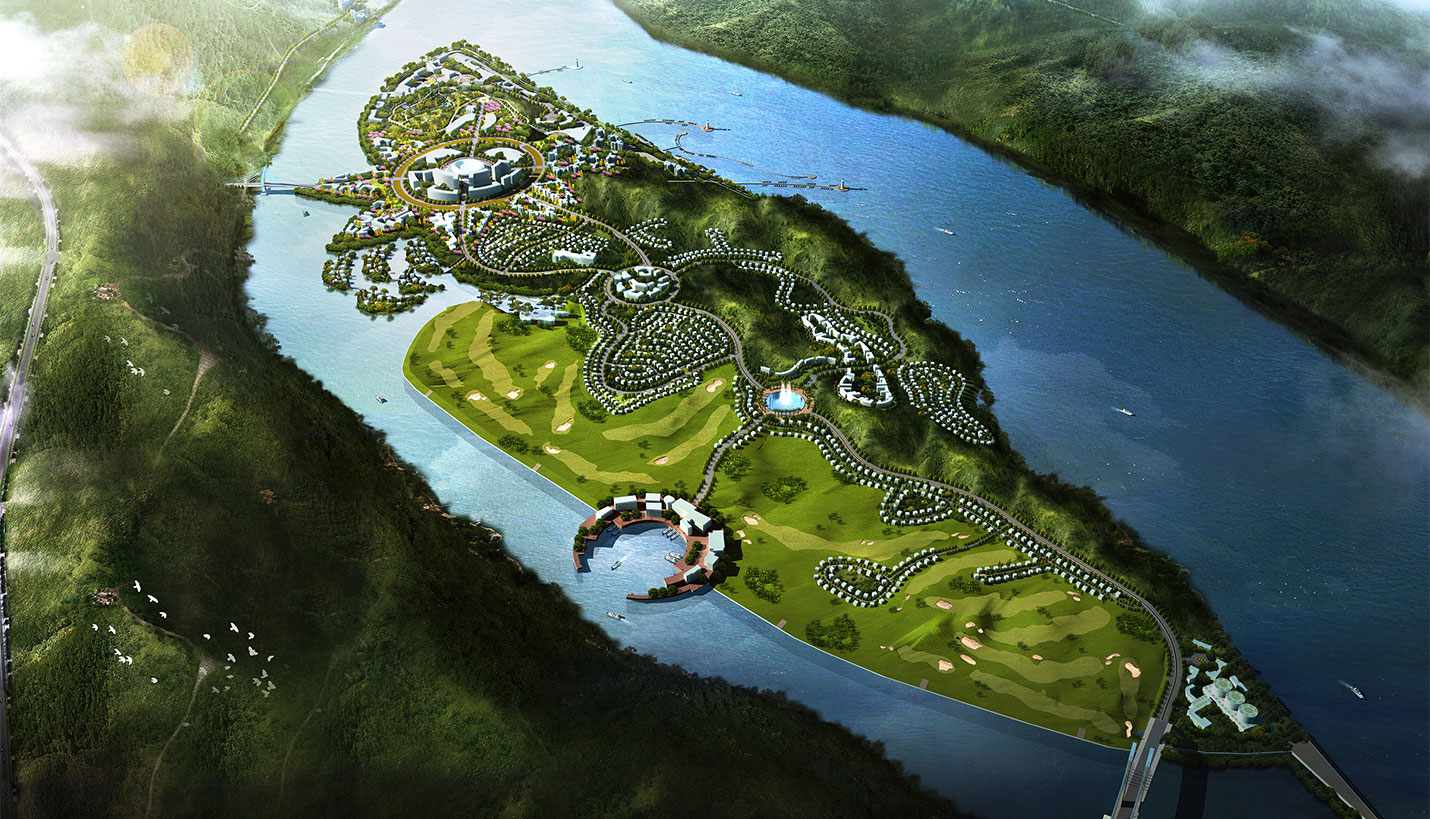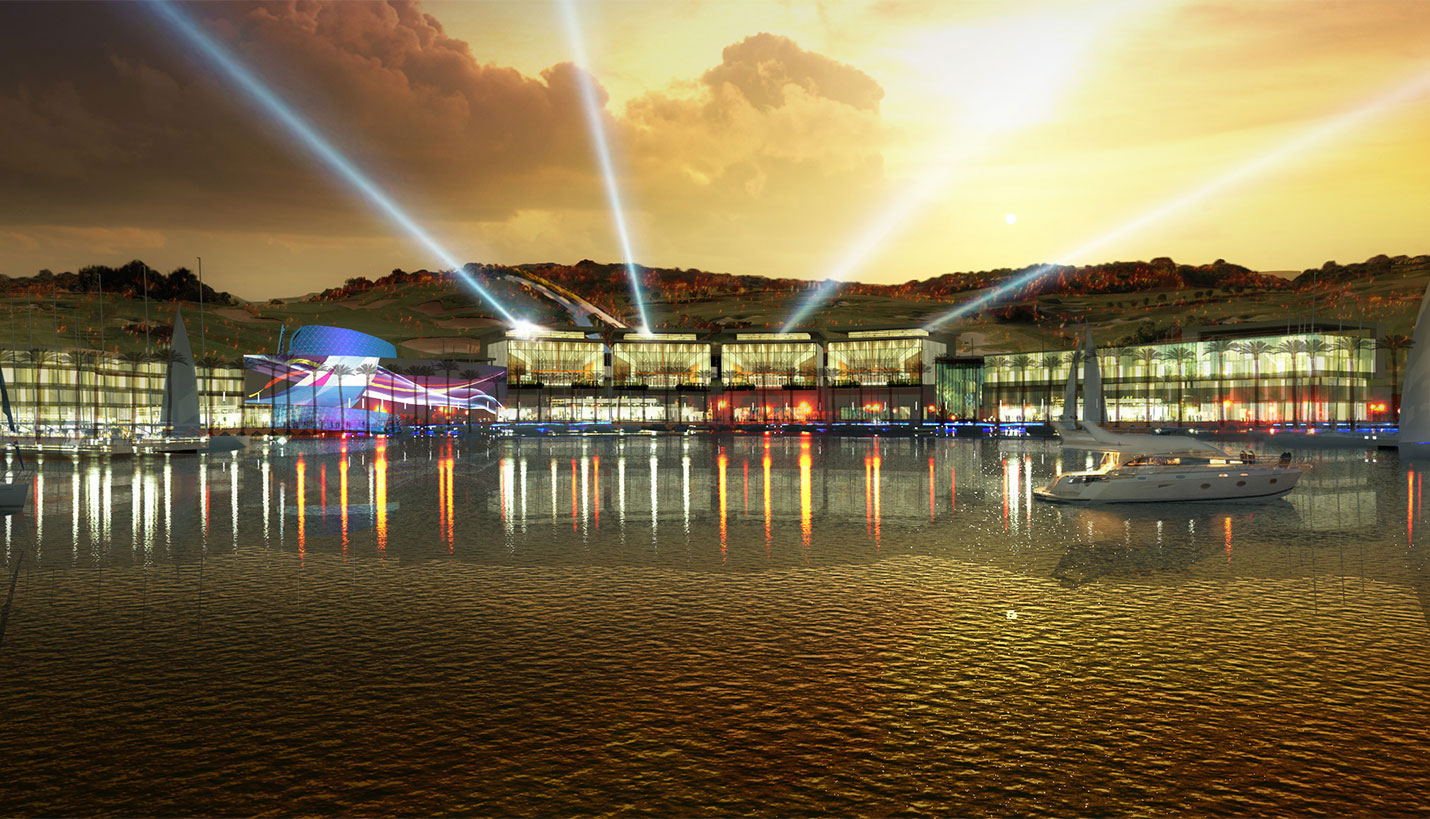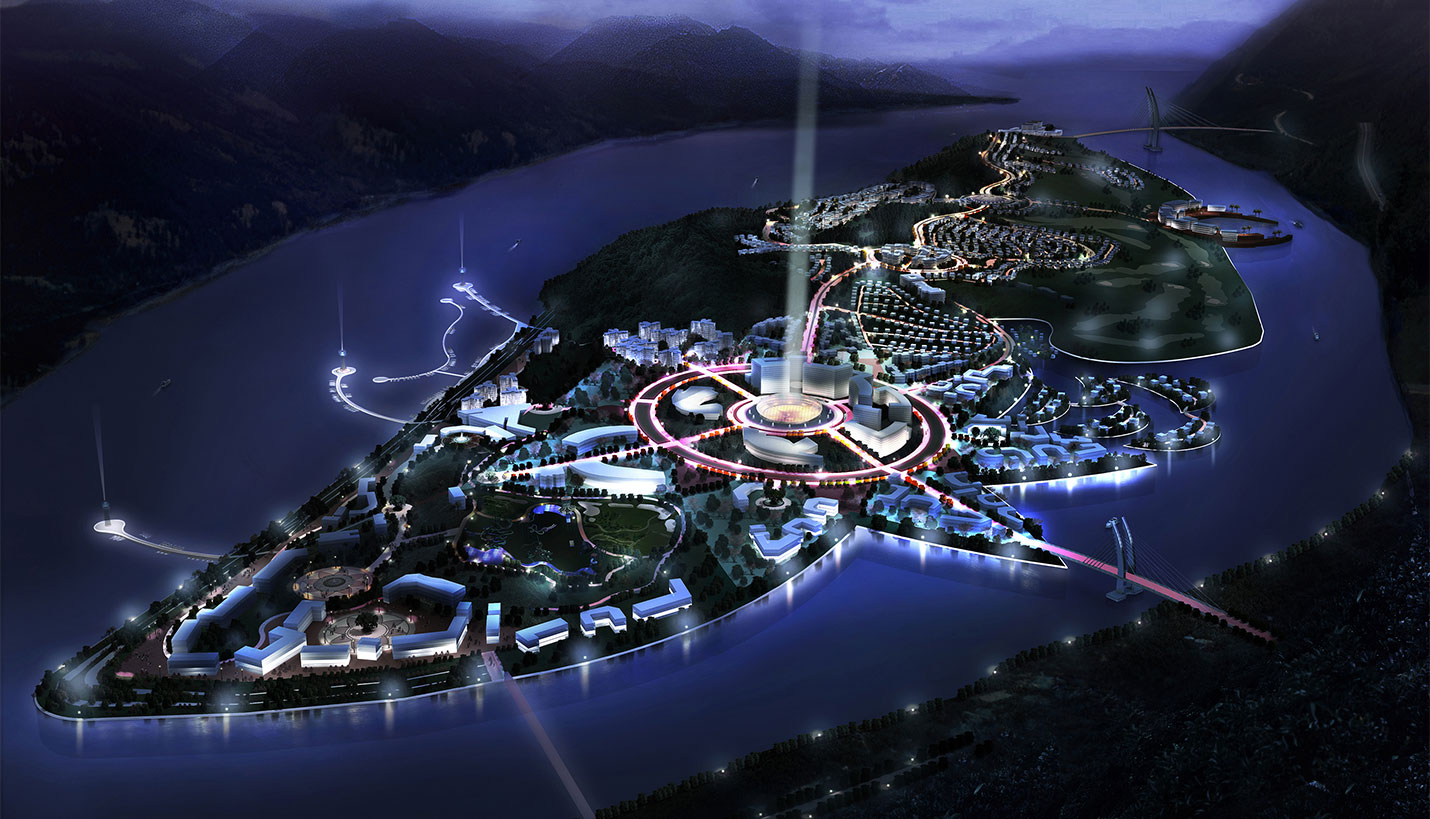Urban Design Projects in China Win Texas ASLA Design Awards
Page is excited to have two urban design projects in China that recently received design awards from Texas ASLA. The Lanzhou City Urban Plan, which was the only project to receive an Honor Award in the “Unrealized (not yet constructed) Commercial” category, responded to the call to develop a master plan for the 60 kilometer River Edge as the Yellow River passes through Lanzhou. A Merit Award winner in the same category, the Taohua (Peach) Island Master Plan moves the economic heart of the Chongqing area to a low-carbon, mixed-use/live-work community on nearby Taohua Island.
Lanzhou City Urban Plan / Lanzhou, China
The ancient city of Lanzhou, which lies in the western interior of China at the edge of the Gobi Desert and the headwaters of the Yellow River, is rapidly positioning itself to become the economic and touristic catalyst for the region. In doing so, the restoration and reclamation of the Yellow River is paramount to the area’s redevelopment. The Page team participated in a competition to develop a master plan for the 60 kilometer River Edge as it passes through Lanzhou. Touristic, entertainment and development zones were planned as a sustainable economic catalyst in support of the city’s long-range plan. A new central business district was proposed on brownfield lands reclaimed from industrial sites. The Aqua Culture Research Park was planned along shoreline pedestrian paths and bikeways, and large entertainment and recreation venues were sited near proposed parks and urban gardens.
To help mitigate the poor air quality in the area, the team proposed a variety of interventions in the Lanzhou plan. From electric mass transit to urban forest ‘islands’, from gardens and wetlands to relocations of entire riverside industrial and manufacturing complexes, Page’s plan for “greening” Lanzhou would have an enormous impact of the area’s carbon footprint.
Taohua (Peach) Island Master Plan / Chongqing, China
The environmental and cultural challenges created by the construction of the Three Gorges Dam on the Yangtze River, along with the explosive growth of Chongqing—one of the five national central cities in China, prompted the local government to propose an international design competition to relocate the economic heart of the region to a low-carbon, mixed-use/live-work community on nearby Taohua Island. Incorporating a focus on optimizing density requirements and shared amenities, the Page team developed a design response that created a pedestrian-oriented residential urban center and tourist attraction surrounded by a protected environmentally sensitive ecosystem.
The metaphorical form of the island’s urban core is an eight-petal peach blossom. The design team chose the number eight, a Chinese symbol of wealth and prosperity, as a symbolic representation of the financial district core. The area intended for the core was originally a quarry but had been severely altered both in topography and vegetation. The planned reclamation allowed the design team to reshape the site to reflect the peach blossom.
Recognizing the area’s history and acknowledging the enormous cultural impact of the Three Gorges Dam, the Page team proposed in their plan that the historic village of Bayu on the riverbank adjacent to the island be restored into a cultural village.
We are very proud of our team of dedicated architects and designers whose contributions elevate the entire Page family.
04/17/2014
People
Related Posts
- Promoting the Living Community Challenge
- Wendy Dunnam Tita: Design Excellence in Cities
- Honor Award from ASLA: Texas Capitol Complex Master Plan
- The Next Big Idea: Pierce Skypark
- Campus Constants, Digital Flux
- Dan Kenney – Shaping Campuses
- 3/3: Multifamily Housing Trends in Fastest-Growing US City



